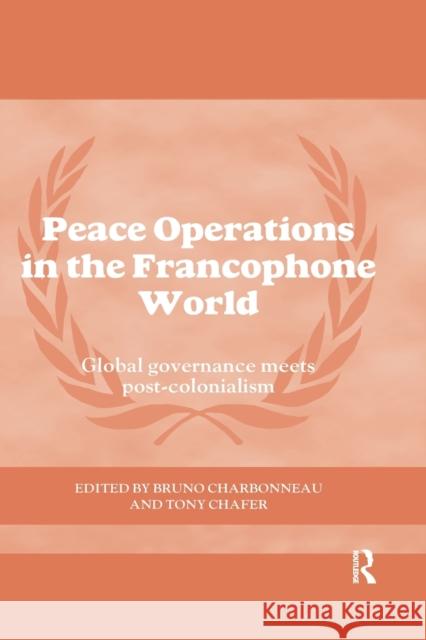Peace Operations in the Francophone World: Global Governance Meets Post-Colonialism » książka
topmenu
Peace Operations in the Francophone World: Global Governance Meets Post-Colonialism
ISBN-13: 9780367600709 / Angielski / Miękka / 2020 / 194 str.
Peace Operations in the Francophone World: Global Governance Meets Post-Colonialism
ISBN-13: 9780367600709 / Angielski / Miękka / 2020 / 194 str.
cena 216,48
(netto: 206,17 VAT: 5%)
Najniższa cena z 30 dni: 196,40
(netto: 206,17 VAT: 5%)
Najniższa cena z 30 dni: 196,40
Termin realizacji zamówienia:
ok. 30 dni roboczych.
ok. 30 dni roboczych.
Darmowa dostawa!
This book critically examines peacebuilding, humanitarian intervention, and peace operation practices and experiences in Francophone spaces.











